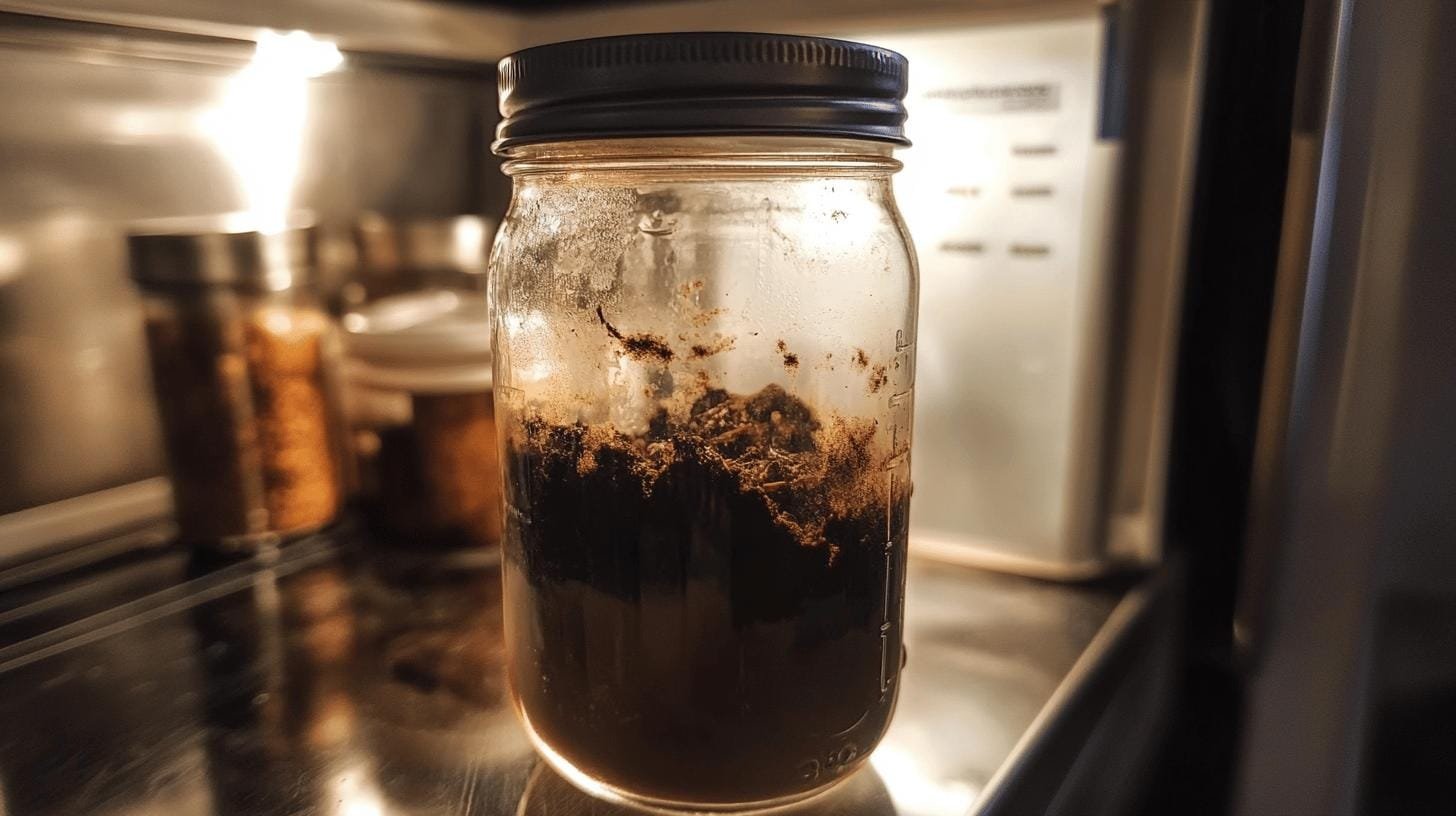
Emerging Approaches Redefining Craft-Focused Customer Experiences
Craft-focused small businesses have always relied on care, precision, and sourcing to stand out. What’s changing now is how those values are shown, not just

Is decaf coffee really the gentle brew it’s claimed to be? At first glance, it might seem like the perfect solution for coffee lovers seeking to enjoy their favorite beverage without the jitters. Yet, the question of “how acidic is decaf coffee?” remains.
Knowing the acid levels in decaf coffee is crucial not only for taste but also for those concerned about gastro-oesophageal reflux and acid sensitivity. By examining the pH level and comparing it to regular coffee, this exploration reveals the intriguing balance decaf coffee acidic strikes in flavor and health.
Acidity in coffee is about its pH level, showing how acidic or basic it is. Coffee usually ranges between a pH of 4.85 and 5.10. Decaffeinated coffee often lands on the lower side of this scale, meaning it’s less acidic than regular coffee. This is significant for people sensitive to acidic foods and drinks or managing reflux disease.
Decaf coffee’s acidic lower acidity comes mainly from the decaffeination process. This process removes caffeine and reduces acidic compounds in the beans, leading to a drink with less overall acidity. Many consumers choose decaf coffee not only because it still has caffeine in very small amounts but also due to its gentler acidity. It’s a good option for those with sensitive stomachs or gastroesophageal reflux disease.
Acidity is key to coffee’s flavor, adding brightness and complexity. While some acidity is desirable, too much can be a problem for those with sensitivity, causing discomfort. Choosing low acid coffee can offer a more enjoyable coffee time for these individuals.

Typically, decaf coffee shows slightly less acidic qualities than regular coffee, mainly due to the decaffeination process. This makes decaffeinated coffee appealing not just for being caffeine-free but also for its low acid profile. For those sensitive to acidity, drinking decaf coffee becomes a preferable option.
Some switch to decaf coffee acidic options specifically for less acidity, often because they want to skip caffeine but still enjoy a cup of coffee.
Understanding acidity differences is crucial for taste and health. Reduced acidity smoothens flavor, creating a less sharp taste. For those with gastrointestinal issues like reflux disease, opting for low acid options helps minimize irritation.
Thus, choosing between regular and decaf coffee often depends on taste and health, with decaf coffee acidic versions serving as a viable low-acid coffee option.
Due to its lower acidity, decaf might be gentler on digestion than regular coffee.
As with diet considerations, individual reactions vary, and more research is needed on decaf’s health impacts. With potential benefits, decaf remains a choice for managing acid-related digestive concerns without losing coffee enjoyment.

Lowering coffee acidity is key for those preferring milder taste or having acid sensitivity. Several methods can help create a least acidic coffee, making for a smoother drink.
Cold brew coffee cuts acidity up to 60%. It involves soaking coffee grounds in cold water for 12–24 hours. Cold water extraction reduces citric acid, malic acid, and other compounds, giving a smoother, less tangy coffee. Thus, cold brew coffee had lower acid levels compared to hot coffee.
Dark roast coffee is naturally lower in acidity. Extended roasting breaks down acidic compounds like quinic acid, creating richer, smoother flavors. This method not only cuts acidity but also deepens flavor, popular for those seeking low acid coffee.
The Swiss Water Process is a chemical-free decaffeination method great for low acid coffee. It uses water to extract the caffeine, maintaining natural flavors while being 99.9% caffeine-free. No chemical solvents mean a cleaner and less acidic cup.
Combining these methods can further lower acidity. Using cold brew and hot brew techniques with dark roast coffee and Swiss Water-processed beans provides a comprehensive approach for the least acidic decaf coffee. This creates a smoother, more enjoyable experience for those sensitive to acid in coffee.
Those with sensitive stomachs or acid reflux should choose coffee carefully to avoid discomfort. While no coffee is totally acid-free, picking types with lower Chlorogenic acid can reduce acidity.
Home-roasted beans offer an advantage over big brands. Home roasting gives enthusiasts the chance to tailor acidity levels, enhancing flavor and keeping beans fresher longer. It also allows sourcing inherently less acidic beans for better control over final coffee characteristics.
Exploring how acidic is decaf coffee reveals that its acidity is typically lower than regular coffee. This is beneficial for those with reflux disease, acid sensitivity, or gastro-oesophageal reflux conditions. While acid lends brightness to coffee’s flavor, too much can cause discomfort. Effective methods like cold brew coffee and dark roast coffee further reduce acidity for those seeking smoother coffee experiences.
Understanding these options helps in selecting the best low-acid coffee varieties. With informed choices, coffee drinkers can enjoy their favorite beverage without compromising comfort or taste.
Decaf coffee is generally less acidic than regular coffee due to the decaffeination process, which can lower acidity levels and make it a better choice for those with acid sensitivity.
The pH level of decaf coffee often falls on the lower end of the typical coffee range, between 4.85 and 5.10.
Lower acidity in decaf coffee makes it suitable for people with gastro-oesophageal reflux, as it causes less irritation and is easier on the stomach.
Decaf coffee is easier on the stomach due to its lower acid levels, benefiting those with sensitive digestive systems or conditions like GERD and IBS.
Coffee with the lowest acidity typically includes dark roast coffee, cold brew coffee, and those processed using the Swiss Water Process.
Decaffeinated coffee generally has lower acid levels than caffeinated coffee, but it can still be considered acidic. The acid levels in decaf depend on various factors, including the type of bean used and the roast coffee process. However, many people find that drinking decaf coffee is gentler on their stomach compared to regular caffeinated coffee.
The acidic taste of both regular and decaf coffee can potentially irritate the esophagus, which may exacerbate symptoms of gastroesophageal reflux disease (GERD). For individuals with GERD or gastro-oesophageal reflux, choosing low acid coffee options can help minimize discomfort.
Yes, drinking decaf can be beneficial for those with reflux disease as it typically contains less acid compared to regular caffeinated coffee. However, it’s important to note that decaf coffee acidic levels can still be a concern, so opting for low acid varieties might be advisable.
The acidity in decaf coffee primarily comes from the natural compounds present in green coffee beans, such as citric acid and malic acid. The method used to decaffeinate the coffee may also influence its acidity. Additionally, the type of bean, such as arabica beans or robusta coffee, and the roast coffee process can affect the overall acidity.
Yes, several brands offer low acid varieties of decaffeinated coffee. These are specially processed to reduce acidity and are suitable for those who seek a milder acidic cup of coffee

Craft-focused small businesses have always relied on care, precision, and sourcing to stand out. What’s changing now is how those values are shown, not just

How can brands create a more balanced and memorable customer experience by blending artisanal product quality with thoughtful everyday rituals that keep people coming back?

Independent coffee shops have always been about more than caffeine—they’re hubs of creativity, connection, and care. As café culture continues to evolve, new trends are

Introduction Independent cafes win when they feel like the neighborhood’s living room and operate with the discipline of a great kitchen. Below is a quick

Discover how top specialty coffee brands create lasting loyalty through storytelling, sourcing, and community connection. Real tips from 6 industry experts.

Discover the ultimate showdown between two beloved coffee brewing methods: the French press and Chemex. Explore how each technique caters to distinct palates, with the French press delivering bold flavors and the Chemex presenting a bright, clean taste.

Unlock the secrets to brewing the perfect cup of coffee with our comprehensive guide on using a coffee scale. Discover how precise measurements enhance flavor and consistency while eliminating bitterness.

Discover how water temperature plays a vital role in brewing the perfect cup of coffee. This article delves into the ideal temperature range of 195°F to 205°F for optimal flavor extraction, enhancing the enjoyment of high-quality beans.

Discover the world of curated specialty coffee bundles, perfect for enthusiasts seeking quality and craftsmanship. This article explores the benefits of ethically sourced, small-batch beans from brands like Equipoise Coffee, offering diverse flavor profiles that elevate your brewing experience.